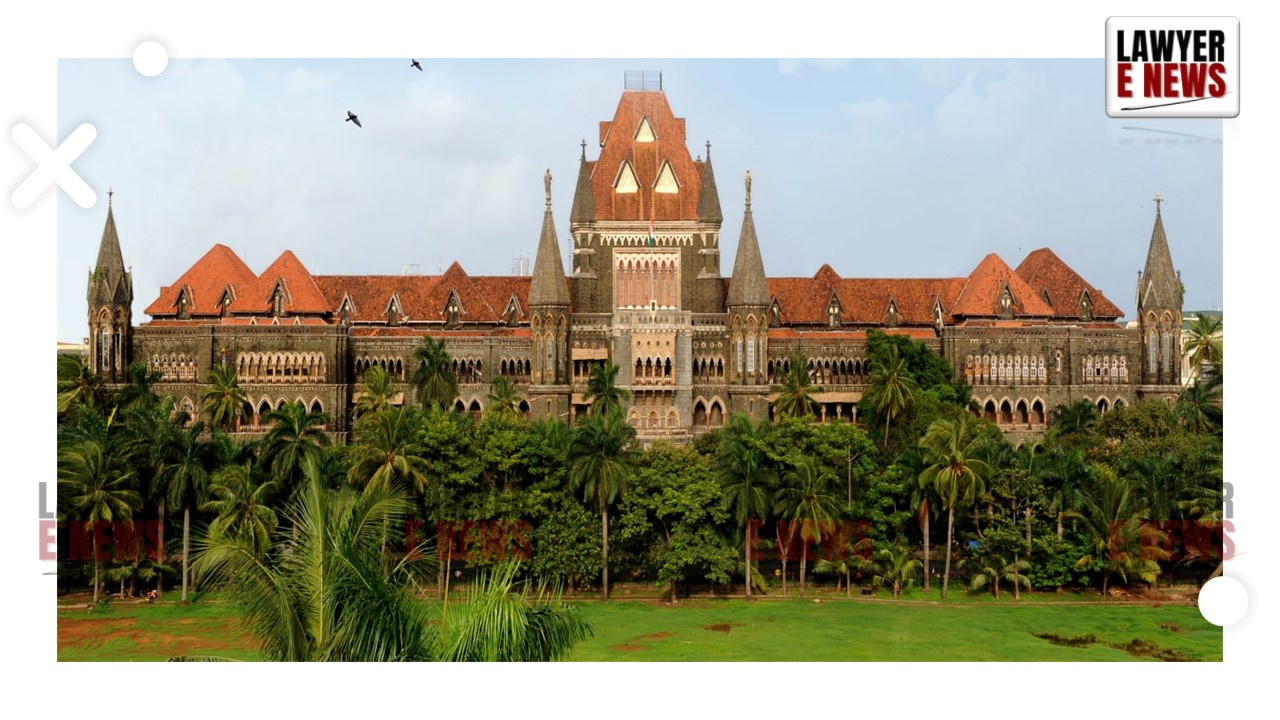-
by Admin
15 February 2026 2:16 AM



"Tenant, having paid rent for decades, estopped from denying landlord's title" – High Court Reiterates in Civil Revision Application No. 576 of 2019. Today, on 12 Sep. 24, the Bombay High Court, in the matter of Kashinath Ramchandra Kolwankar (since deceased) through Legal Heirs v. Gajanan Ramakant Desai and Others, reaffirmed the eviction of the defendant from the disputed premises located at Dadar, Mumbai. The court ruled that the defendant, who had challenged the landlord’s title, could not do so without first vacating the property. The decision clarifies long-standing principles under Section 116 of the Indian Evidence Act and reinforces the boundaries of tenant rights under the Bombay Rent Act. This case, which involved a co-operative housing society’s claim over land ownership, has far-reaching implications for tenancy law in India.
The roots of the dispute stretch back to 1992 when the legal heirs of Ramakant Desai, a landlord and original owner of "Dulaba Prasad" in Dadar, filed a suit for recovery of possession against Kashinath Ramchandra Kolwankar, who was inducted as a tenant in the building's Flat No. F-2. The building was constructed by Desai on Plot Nos. 60-D and 60-F, purchased from M/s Sant Brothers in 1953.
The plaintiffs, legal heirs of Ramakant Desai, sought eviction on multiple grounds, including non-payment of rent, reasonable and bona fide requirement, nuisance, unauthorized alterations, and denial of title. The trial court initially dismissed the eviction suit in 2008, ruling in favor of the tenant, holding that the plaintiffs had not proven their status as landlords. This decision was based largely on earlier proceedings under the Maharashtra Co-operative Societies Act, which had granted the defendant membership in the Naigaon Co-operative Housing Society.
However, in 2019, the Appellate Bench of the Small Causes Court overturned this ruling, granting the plaintiffs the right to evict Kolwankar. Aggrieved by the decision, the defendant filed a civil revision application before the Bombay High Court.
Landlord-Tenant Relationship: Whether the plaintiffs had sufficiently proven a landlord-tenant relationship with the defendant, thereby entitling them to seek eviction under the Bombay Rent Act.
Denial of Title: Whether the defendant, having challenged the plaintiffs’ ownership of the premises and secured membership in the co-operative society, could legally deny the plaintiffs' title while still occupying the premises.
The defendant, through his legal heirs, argued that the co-operative society, not the plaintiffs, was the true owner of the land and building. They contended that the suit was barred by res judicata due to previous co-operative society-related proceedings. The plaintiffs countered that the defendant had recognized the landlord-tenant relationship for several decades by paying rent and was thus barred from challenging the landlord's title under Section 116 of the Indian Evidence Act.
Justice Sandeep V. Marne delivered the ruling, carefully analyzing the legal arguments presented by both sides. The judgment clarified several key legal points:
Principle of Estoppel (Section 116 of the Indian Evidence Act): The court highlighted that a tenant is estopped from challenging the title of the landlord during the period of tenancy unless the tenant first surrenders possession of the property. In this case, the defendant had occupied the premises as a tenant since 1955 and paid rent to Ramakant Desai for over three decades. By doing so, the tenant effectively recognized Desai and, by extension, his heirs as landlords.
The court emphasized that under Section 116 of the Indian Evidence Act, a tenant who has entered the property under a rental agreement cannot later deny that the landlord had title at the beginning of the tenancy. The court ruled that the defendant's refusal to continue paying rent after 1988, combined with his challenge to the plaintiffs' title, could not be sustained under law.
“The tenant cannot acquire rights of ownership through mere possession or assertion of claims; they must first vacate the premises and then pursue any claims to title.”
Landlord-Tenant Relationship under the Bombay Rent Act: Justice Marne reiterated that, under the Bombay Rent Act, the definition of "landlord" does not necessarily require ownership of the property. A landlord is any person entitled to receive rent. The existence of a landlord-tenant relationship alone, established through the tenant’s long history of paying rent to the plaintiffs, was sufficient to maintain an eviction suit.
“It is immaterial whether the plaintiffs have a formal title or ownership; what matters is that the tenant recognized them as landlords by paying rent.”
Res Judicata and Proceedings under the Maharashtra Co-operative Societies Act: The defendant’s claim that the suit was barred by res judicata, based on prior proceedings that had recognized him as a member of the co-operative society, was rejected. The court held that the earlier proceedings related to the defendant's membership in the society, not the specific issue of the landlord-tenant relationship regarding the premises in question. Thus, the proceedings under the Maharashtra Co-operative Societies Act did not preclude the plaintiffs from seeking eviction.
Past Judicial Precedents: The judgment also referenced several past rulings, including decisions in the cases of S.Y. Wagle v. Sunanda Desai (2002) and Sudam M. Patilhande v. Sunanda Desai (2007), where other tenants in the same building had similarly challenged the landlord’s title but failed. The court held that the defendant could not ignore binding judicial precedents that had already upheld the plaintiffs’ status as landlords in related cases.
The Bombay High Court’s decision reaffirmed the principles that define the landlord-tenant relationship under Indian law, particularly the estoppel doctrine under Section 116 of the Indian Evidence Act. The court confirmed that the plaintiffs, as landlords, had the right to seek possession of the suit premises from the defendant, despite the defendant’s attempts to deny their ownership. The judgment underscores that tenants cannot challenge a landlord’s title while continuing to occupy the property, and such challenges must be pursued only after surrendering possession.
Date of Decision: September 12, 2024
Kashinath Ramchandra Kolwankar (since deceased) through Legal Heirs v. Gajanan Ramakant Desai
